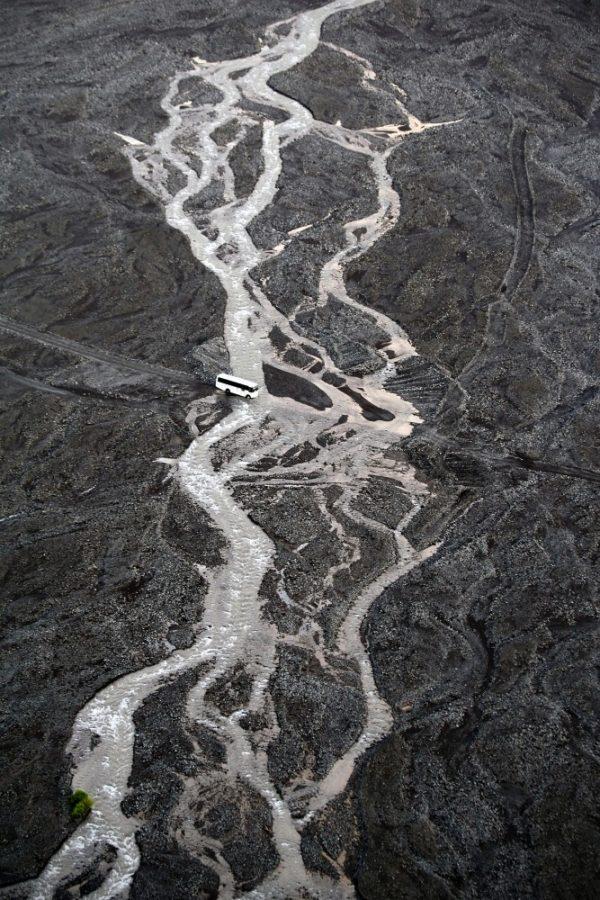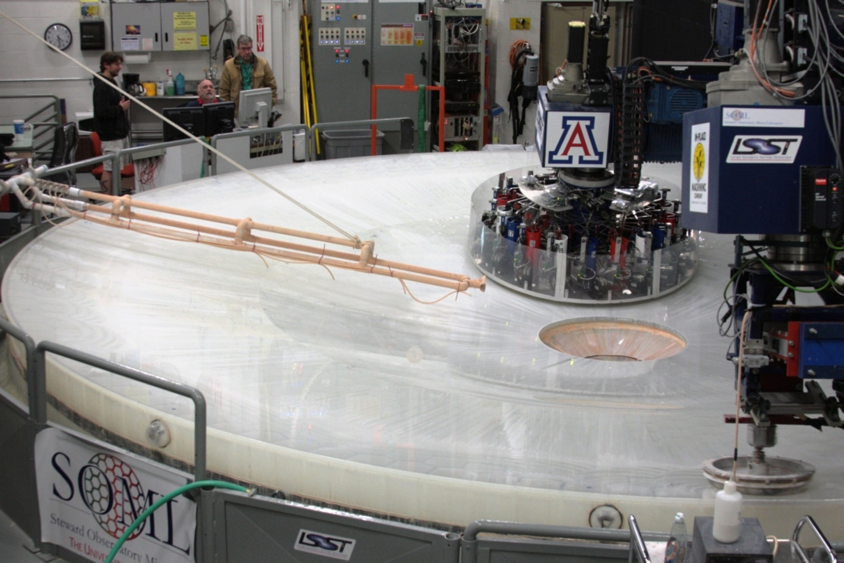Four out of the five annual Arizona-wide Bisgrove Scholar Awards have been awarded to UA researchers. Each will receive $200,000 to support them in their current research. Jianqiang Cheng, Michael Marty, Luke McGuire and John Schaibley are all current UA assistant professors who plan to put the grant money to good use.
Jianqiang Cheng is an assistant professor in systems and industrial engineering. His research focuses on stochastic programming and mathematical optimization used to evaluate risks in various fields such as renewable energy, transportation and finance.

“You make the best decision associated with a criterion,” said Cheng, who hopes to improve the effectiveness of stochastic programming through his research.
Michael Marty is an assistant professor of chemistry and biochemistry, whose research examines membrane proteins. Using a type of chemical scale known as mass spectrometry, his team focuses on proteins that live in very specific environments.
“We do it on an individual particle basis,” said Marty who hopes to continue to build and expand his current lab with both students and equipment.
Geosciences assistant professor Luke McGuire is researching geomorphology, which interconnects several other fields such as hydrology and applied mathematics in a geological foundation. Geomorphology focuses on topographic features and how they are created by processes occurring near the Earth’s surface.
“The award comes with funding that will enable me to study post-wildfire erosion and debris flow hazards in Arizona,” McGuire said.
RELATED: UA researcher snags Air Force grant for transistors
John Schaibley is an assistant professor of physics and studies optical and electronic devices on a two-dimensional scale, the thinnest in the world.
“I am developing practical technologies based on these ultra-thin devices for high-speed computing, light emission and light harvesting [solar cell] applications,” he said.
Most of the researchers hope to use some of the money to build up their research team and bring on more graduate and undergraduate students to assist them.
“I can use this money to recruit two Ph.D. students each year for two years,” said Cheng. The other researchers echo this sentiment, planning to fund student researchers who will become involved with their team and collaborate on research and ideas. This benefits all parties, as students gain experience in a research field and the researchers have assistance.
While a few of the researchers have received grants before, an external grant like the Bisgrove Scholar program has some advantages, such as allowing the recipients to work with more freedom and less specific criteria.
“There’s less strings attached,” Marty says. “It’s not like there’s big milestones we have to hit. So, it’s nice to have that external support in a way that lets us be a little more creative with the science we want to do and follow new paths.”
RELATED: UA earth scientists answer questions about an ancient, green Sahara
While this year has seen the most UA researchers awarded the scholarship, the process is rigorous, with each applicant drawing up a proposal explaining what they will do with their research and how they plan to use the grant money to assist them in their goals. Although highly competitive, a total of $4 million has been awarded to 21 researchers through the program since its inception. Other Arizona university researchers are eligible to apply.
“It is a great honor to be a Bisgrove Scholar,” Schaibley said.
The Bisgrove Scholar program is sponsored by Science Foundation Arizona, a non-profit organization founded in 2006, whose goal is to help exceptional researchers in Arizona transform their research into something beneficial to society.
The grant will allow the researchers to increase their outreach to the scientific community, engage more students and increase the amount of time and effort they can apply to their current work.
“The work funded by my Bisgrove Scholar Award will help facilitate collaborations between my research group, engineers and researchers in industry,” McGuire said. “Establishing these collaborations is exciting because it opens up a wide range of possibilities for future research that I could not explore alone.”
Follow Nicole Morin on Twitter.










